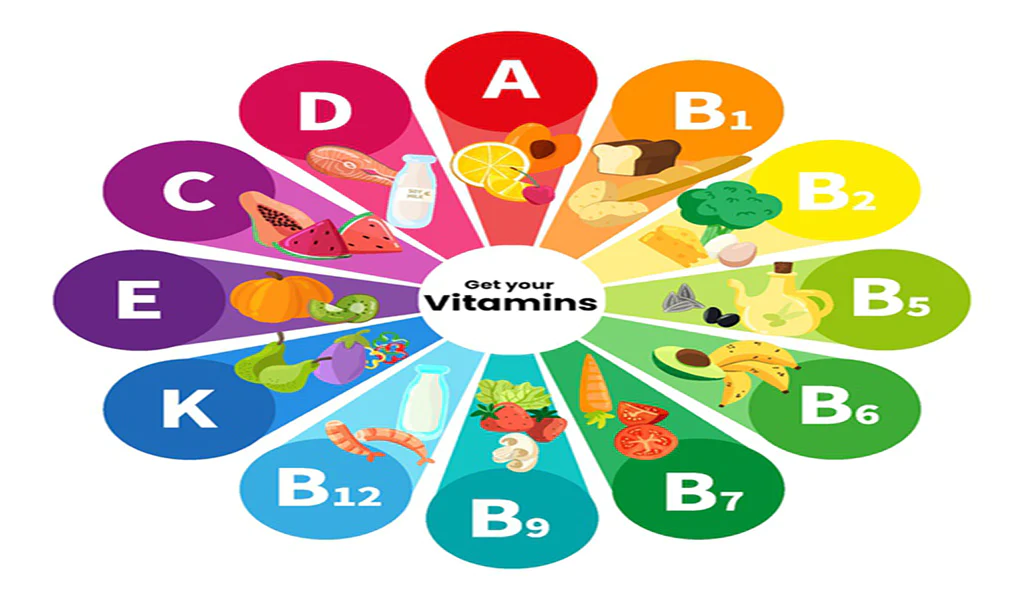Vitamins are essential nutrients that play a crucial role in maintaining overall health and well-being. These micronutrients are required in small amounts but have significant impacts on various bodily functions, including metabolism, immune system support, energy production, and cellular repair. While a balanced diet should provide most of the necessary vitamins, certain factors such as lifestyle choices, dietary restrictions, and specific health conditions may require additional vitamin supplementation. Let’s delve into the world of vitamins, their importance, different types, dietary sources, and how they contribute to our overall health.
Understanding the Importance of Vitamins
Vitamins are organic compounds that our bodies need to function properly. They act as coenzymes, facilitating chemical reactions within cells and supporting essential bodily processes. Vitamins are categorized into two groups: water-soluble and fat-soluble.
- Water-Soluble Vitamins: Water-soluble vitamins, including vitamin C and the B-complex vitamins (such as B1, B2, B3, B5, B6, B7, B9, and B12), dissolve in water and are not stored in significant amounts in the body. This means they need to be consumed regularly as any excess is excreted in urine. Water-soluble vitamins play roles in energy metabolism, cell function, collagen synthesis, and nervous system health.
- Fat-Soluble Vitamins: Fat-soluble vitamins, which include vitamins A, D, E, and K, are absorbed through the intestinal tract with the help of dietary fats and are stored in the liver and fatty tissues for later use. Unlike water-soluble vitamins, they can be stored in the body for longer periods. Fat-soluble vitamins contribute to vision, bone health, antioxidant protection, blood clotting, and immune function.
The Role of Vitamins in Health and Well-being
- Energy Production: B-complex vitamins (B1, B2, B3, B5, B6, B7, B9, and B12) are involved in the metabolism of carbohydrates, proteins, and fats, converting them into energy that fuels our bodies.
- Immune System Support: Vitamins A, C, and D, along with certain B vitamins, play a vital role in supporting the immune system, helping to fend off infections and maintain overall immune function.
- Cellular Repair and Growth: Vitamins A, C, and E, along with B-complex vitamins, contribute to cellular repair, growth, and the production of new cells. They support tissue development, wound healing, and overall skin health.
- Antioxidant Protection: Vitamins C and E, as well as beta-carotene (a precursor to vitamin A), act as antioxidants, neutralizing harmful free radicals that can damage cells and contribute to chronic diseases.
- Bone Health: Vitamins D and K, in conjunction with calcium and other minerals, play a crucial role in bone health, promoting proper bone formation, mineralization, and strength.
Dietary Sources of Vitamins
While vitamin supplementation can be beneficial in certain cases, it is generally recommended to obtain vitamins through a balanced diet. Here are some dietary sources of various vitamins:
- Vitamin A: Found in foods such as carrots, sweet potatoes, spinach, kale, and liver.
- B-Complex Vitamins: Whole grains, legumes, meat, poultry, fish, eggs, dairy products, leafy greens, nuts, and seeds are all good sources.
- Vitamin C: Citrus fruits (oranges, grapefruits), berries, kiwi, bell peppers, tomatoes, broccoli, and leafy greens are rich in vitamin C.
- Vitamin D: While sunlight is a natural source of vitamin D, it can also be found in fatty fish, fortified dairy products, and egg yolks.
- Vitamin E: Nuts and seeds, vegetable oils (such as olive oil and sunflower oil), leafy greens, and fortified cereals are sources of vitamin E.
- Vitamin K: Green leafy vegetables (spinach, kale), broccoli, Brussels sprouts, and vegetable oils are good sources of vitamin K.
Supplementation and Consultation
While a balanced diet should provide most of the necessary vitamins, certain situations may require vitamin supplementation. This includes specific health conditions, pregnancy, breastfeeding, vegan or vegetarian diets, or limited sun exposure. However, it’s important to consult with a healthcare professional before starting any supplementation to ensure the appropriate dosage and to consider any potential interactions with medications or existing health conditions.
Conclusion
Vitamins are essential nutrients that support our overall health and well-being. They play vital roles in energy production, immune function, cellular repair, and numerous other bodily processes. While a balanced diet should provide most of the necessary vitamins, supplementation may be beneficial in certain cases. It’s essential to maintain a varied and nutrient-rich diet, incorporating a wide range of fruits, vegetables, whole grains, lean proteins, and healthy fats to ensure an adequate intake of vitamins. By nourishing our bodies with the right balance of vitamins, we can support our health and enjoy a vibrant and energetic life.









